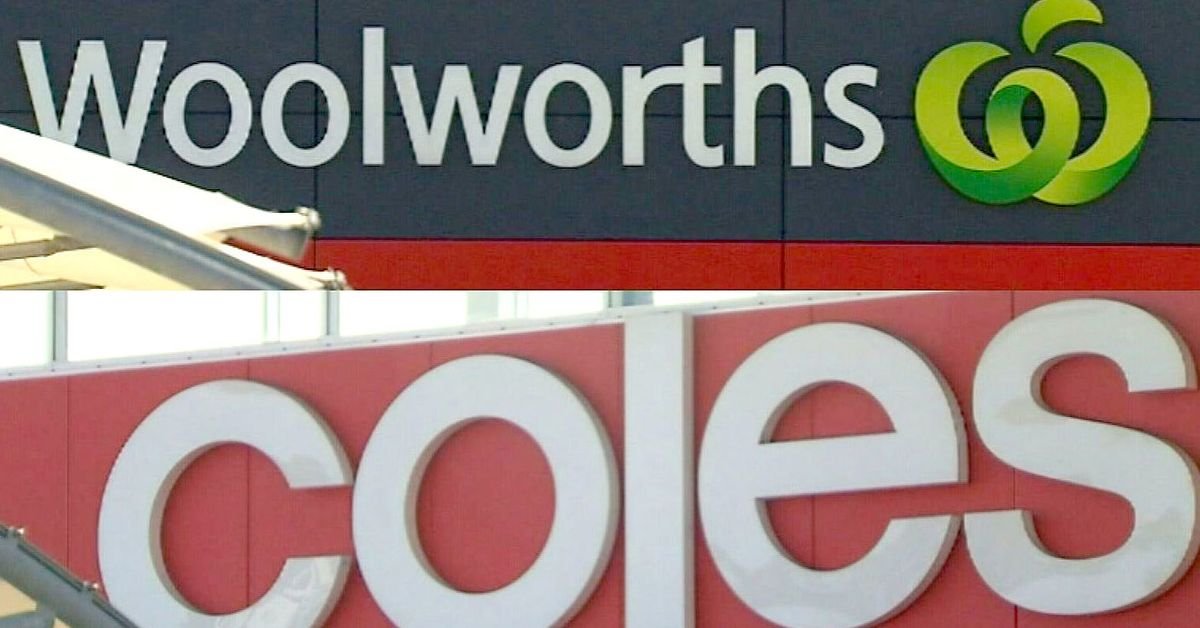Celebrity
Rising grocery prices: Calls for changes at the supermarket, ‘Feels like were are fighting a losing battle’
Today’s ACCC findings into supermarkets will come as no surprise to Aussie shoppers feeling the pinch at the check out.
Shoppers have watched in horror as that final number at the check out each week grew from $170 to $220 to $260 to $300 and upwards over the past couple years.
The consumer watchdog has found Australian supermarkets are among the most profitable in the world, with Coles and Woolworths dominating the market, and has called for further transparency on shrinkflation, pricing and promotions.
READ MORE: ACCC findings on Australian supermarkets released

In light of the report’s findings and recommended changes, all customers can do is continue searching for the lowest prices possible – and it is this quest on which I have built much of my career, sharing tips and tricks on finding the lowest grocery prices and talking about all the ways to save.
But there’s only so much we can do.
We can meal plan, shop fortnightly instead of weekly and find a local farmer’s market that isn’t too far from home. We can use less meat in our meals and make more of our leftovers, but is that enough?
READ MORE: Can customers really save at Costco when it comes to pantry staples?

‘Fighting a losing battle’
The ACCC’s Supermarket Inquiry final report found Coles and Woolworths “dominate the Australian grocery sector and this is set to continue”.
Aldi does place “downward pressure” on grocery prices “to some extent”, however its limited offering means it “does not compete head-to-head with Coles and Woolworths on all aspects of their offerings”.
For customers, it increasingly feels like were are fighting a losing battle, and the family budget is suffering because it’s not just food that now costs more, it’s petrol and electricity and insurance and school fees and activities – and, of course, housing.
READ MORE: The trolley feature expert says could soon be ‘faded out’
For me, I feel more and more like I did during the Global Financial Crisis (GFC) in 2008 when we lost everything and were left in severe financial distress. I was often left with odd amounts such as $76 or $112 to purchase enough food for the week.
Aldi had just opened and I lived near a shopping centre with an Aldi, Coles, Woolworths, a fruit market and a butcher. I remember sitting down beforehand to a meticulous shopping list, planning where I would buy each item.
Shoppers simply don’t have time to assess every purchase they make in the oftentimes 28 minutes they have to complete the weekly grocery shop
That would take two-and-a-half hours each Saturday morning and I’d often find myself ping-ponging between shops to take advantage of the lowest prices possible.
It was exhausting – physically and emotionally. And I feel similar exhaustion these days when I do our weekly shop.
Shoppers ‘don’t have the time to assess every purchase’
Through this exhaustion we are meant to make sense of the signs and sales tags and promotions to ensure we are getting the lowest prices possible. Or, we just give up, grab whatever and head home, having spent more than we’d planned – or without crucial items we needed.

The consumer watchdog concluded that “promotional strategies” used by Coles and Woolworths “make it harder for customers to judge whether they are getting a good deal and make informed decisions about whether to shop with them or elsewhere”.
Christie Nicholas, CEO of consumer group Mumpower, tells 9honey despite shoppers being aware of such strategies, the “overwhelming stress of life” means “[mums] often have no choice but to accept it”.
For a daily dose of 9honey, subscribe to our newsletter here.

Shoppers simply don’t have time to assess every purchase they make in the oftentimes 28 minutes they have to complete the weekly grocery shop before picking their child up from sport or class.
The ACCC is calling for further transparency so shoppers have clear information on which to base their choice. That means clear sales tags and greater transparency on “shrinkflation” – which is “effectively a price increase where a product’s size decreases but the price either remains the same or increases”.
Coles has since released a statement in which they say they have “listened intently and have already made changes, such as simplifying our promotional tickets, providing additional information to customers about promotions and are working to make it easier for customers to compare products through clearer unit pricing”.
READ MORE: The A-Z list of the biggest brands spotted in Amazon’s Big Smile Sale

Woolworths says it “welcomes recommendations that improve transparency for customers where they don’t have unintended consequences or increase costs”.
‘Most people shop on autopilot most of the time’
Adam Ferrier, Consumer Psychologist and founder of Thinkerbell, tells 9honey clarity and consistency of pricing “will help the consumer make better informed decisions, help suppliers to the supermarkets manage their businesses and also help the supermarkets operate profitable businesses”.
“Most people shop on autopilot most of the time, the easier we can make it for consumers to know what they are buying, and know that they are paying, then the better off everyone will be,” he added.
READ MORE: Yellowstone star’s famous father dies aged 78
The ACCC report stated independent supermarkets “can provide a valuable alternative to Aldi, Coles and Woolworths” and this has been the case in parts of Australia that are not dominated by the two majors. Although the report did cite unique pricing pressures faced in regional areas, including “higher freight costs”.
Melina Morrison, CEO of the Business Council of Co-operatives and Mutuals (BCCM), welcomes the ACCC’s comments on independent retailers.
“We just can’t continue to have a marketplace which is dominated by two or three major retailers without genuine competition if we want Australians to have access to a better price at the till,” she tells 9honey.
“Governments should support more community-owned stores to form and that means we need policies that incentivise cooperatives to form and to grow,” she added.
READ MORE: Inside Sydney’s most prestigious star-studded ‘longest lunch’

She urges grocery shoppers to “vote with their wallet”.
“If you have a local, even a small business on your high street providing a very specialised good like a local deli, go and use it,” she says.
“I know cost-of-living pressures mean that we can’t spread our spending power around as much as possible, but every dollar that you spend in a small business, in a mum and dad-owned business, in a cooperative or a community owned business is creating more diversity in the market.
“It’s giving an incentive for those businesses to grow or indeed to remain in the marketplace.”
FOLLOW US ON WHATSAPP HERE: Stay across all the latest in celebrity, lifestyle and opinion via our WhatsApp channel. No comments, no algorithm and nobody can see your private details.

















